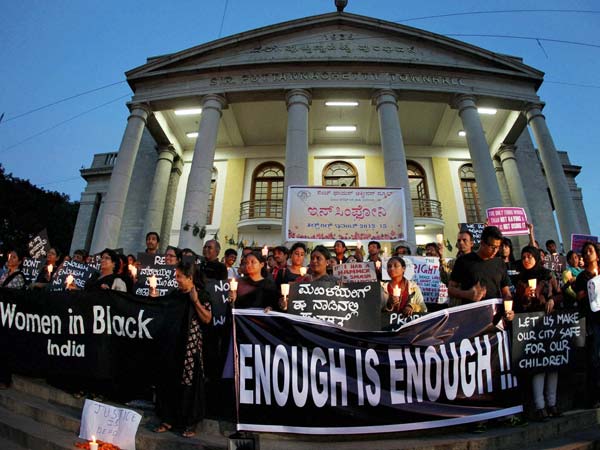Rape with Torture and Death: Sociologists Say Rapists Transfer 'Moral Responsibility' to the Victim

NEW DELHI: A total of 32,077 rape cases were reported across India in 2015. According to the data provided by the National Crime Records Bureau, out of these cases, 1,706 were gang rapes.
The brutal gang rape of Nirbhaya in December 2012 triggered debates on whether capital punishment qualifies as a deterrent for rape. Legal experts said that in many cases the fear of capital punishment might motivate the rapists to kill their victims in order to eliminate the prime witness. Recent rape cases, in which the victim was murdered after being raped, seem to prove this view.
The heinous rape and murder of a 30 year old law student in Kerala, popularly named ‘Jisha’ made people come face to face with the painful reality of today . Jisha was tortured and injured to the extent that her intestines were removed using a sharp object. Her autopsy reports revealed that there were 38 wounds and bite marks on her body.
Another disturbing incident is of a 15 year old girl who was raped and set on fire on the terrace of her house in Noida. Yet another teenage girl’s body was found hanging from a tree after she was raped and strangled by three men, in Bahraich district of Uttar Pradesh. The rapists had tried to make the entire incident look like the victim committed suicide.
These cases have raised serious questions about the mutilation and butchery which is associated with rapes. The Citizen contacted professors of sociology to get possible answers of these questions.
Professor Sharmishtha Malik, from the sociology department of Kamala Nehru College, said that these cases show the “intolerance and hatred” in our society towards women. By brutalizing women, these rapists are trying to “set an example for other women” that they will meet the same fate if they do not remain confined to their homes. She added that “reasons for this type of thought process of rapists are multifaceted.”
Professor Nivedita Ghosh from Jesus and Mary College was of the view that the rapists “do not feel that they are morally wrong” when they engage in such acts of violence. They think that what is happening to the victim is her fault.
Professor Ghosh further said that the rapists “transfer the moral responsibility” of the act to the victim, because they feel that the she should not have done something, but because she did it, she deserved what happened to her.
She added that “such culprits derive pleasure from mutilating the body without feeling guilty.” According to her, one needs to study the social, political, cultural and economic context in which the rapist grows up to understand the problem.
Professor Thuan Bina from Lady Shri Ram College suggested that the “family background and the society” of the rapist, can cause psychological disturbances, which in turn lead them to commit such crimes. She said that studying “behavioural patterns” of rapists can help us get many answers.
The country stands traumatized and ashamed every time our daughters are subjected to such cruelty. But the disturbing question is - How many more ‘Nirbhayas’ will there be?



